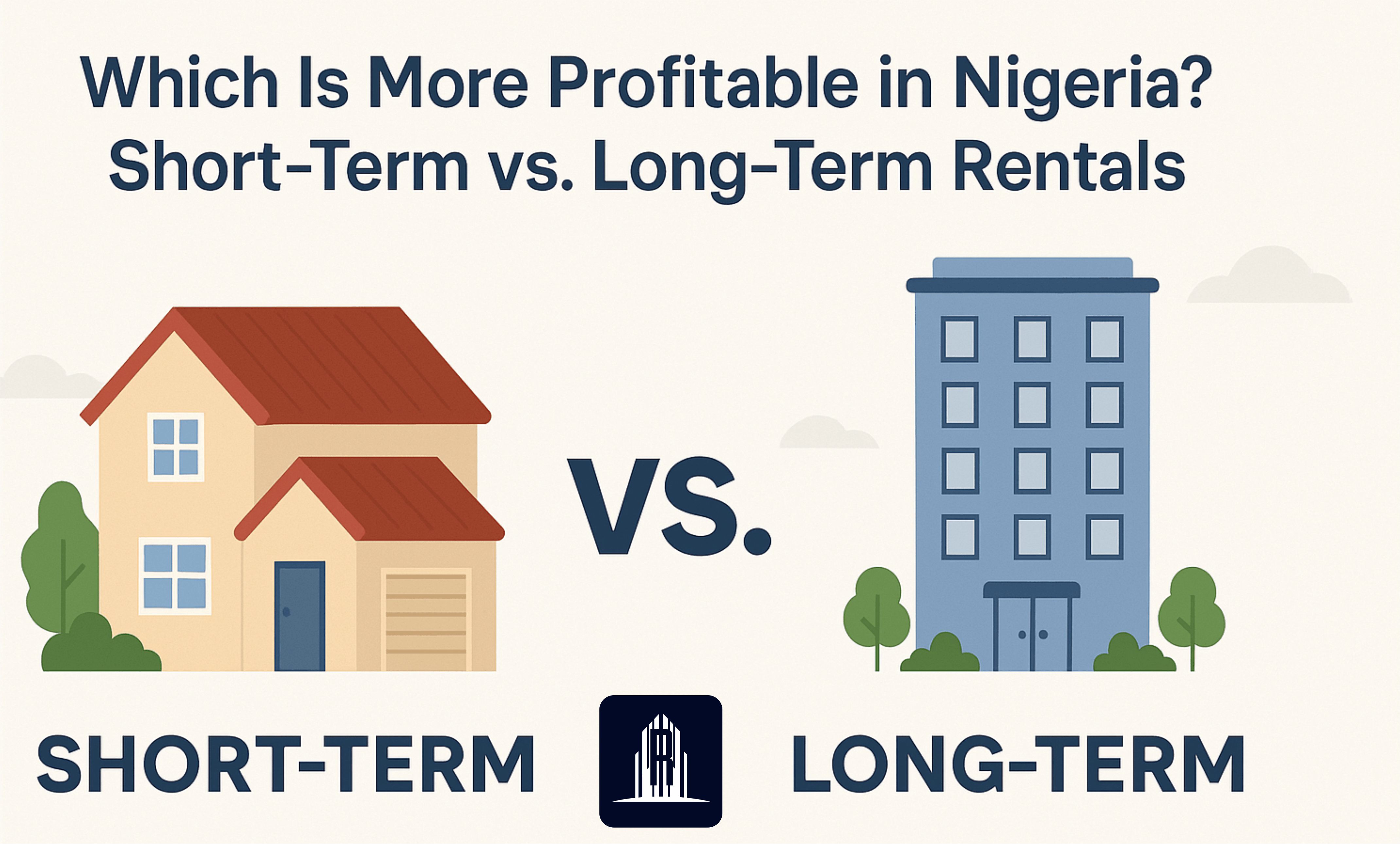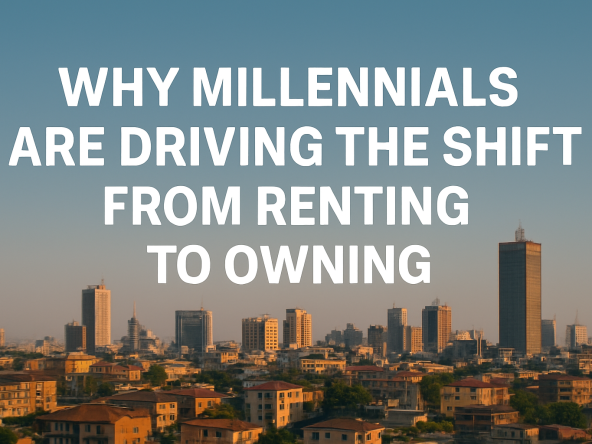In Nigeria’s real estate market, one question keeps popping up for investors: Is it better to go for short-term rentals like Airbnb, or stick with the steady income of long-term leases? Each option comes with its own set of advantages and potential challenges what works best really depends on your goals, preferred locations, and how hands-on you’re willing to be with property management.
1. What Are Short-Term and Long-Term Rentals?
- Short-Term Rentals: Typically rented for a few days to a few weeks. Popular platforms like Airbnb have made this model thrive in urban areas and tourist hotspots.
- Long-Term Rentals: Leases generally last from 1 to 2 years. These are traditional rental agreements, usually appealing to individuals, families, or corporate tenants.
2. Profitability: Show Me the Money
Short-Term Rentals
- ✅ Higher Daily Rates– You can earn more per night, especially in high-demand areas like Lagos, Abuja, Port Harcourt, and Lekki.
- ✅ Flexibility in Pricing– Rates can be adjusted during peak seasons (e.g., December, holidays, events).
- ❌ Higher Vacancy Rates– If not properly marketed, you may face frequent empty periods.
- ❌ More Operational Costs – Frequent cleaning, restocking essentials, and guest management can eat into profits.
Long-Term Rentals
- ✅ Stable Income– Monthly rent provides a steady cash flow.
- ✅ Lower Maintenance– Tenants handle day-to-day upkeep and utilities.
- ❌ Lower Rent Margins– You can’t charge as much as you would for short-term stays.
- ❌ Slower Adjustment to Market Rates – You’re locked into agreed rent for the lease term, even if the market changes.
3. Location is Everything
Short-term rentals thrive in places with:
- Tourist attractions
- Expats or business travelers
- Event venues or city centers
Long-term rentals are more ideal for:
- Suburban areas
- Family-friendly neighborhoods
- Areas near schools or offices
4. Legal and Regulatory Considerations
With the rise of short-term rentals, some cities and estates in Nigeria are beginning to regulate or restrict short-let apartments due to security and community concerns. Always check local policies, especially for serviced apartments or gated estates.
5. Management Style & Time Commitment
- Short-Term Rentals require active management. You’ll need to respond to bookings, maintain a clean space, and handle guest queries—unless you hire a property manager.
- Long-Term Rentals are more hands-off. Once the lease is signed, there’s minimal day-to-day involvement.
Conclusion: Which Is More Profitable?
Both models can be profitable, but here’s the key:
- Choose short-term rentals if your property is in a high-demand area and you’re willing to manage it or hire someone who will.
- Go with long-term rentals if you want predictable income with less daily involvement.
At Ramos Real Estate, we help clients analyze their goals, evaluate their property’s potential, and decide which strategy is best for them. Whether you’re looking for consistent cash flow or high-yield short-term profits, we’ll help you make the smart move.





